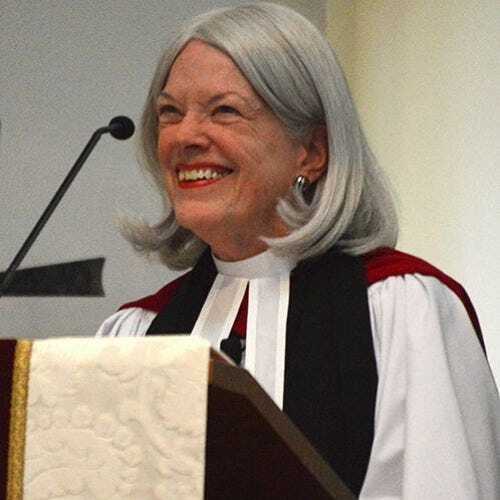“Sir, we would see Jesus.”

If you appreciate the work, pay it forward. Literally! Become a paid subscriber.
Tomorrow the season of Epiphany closes with the Gospel’s account of the Transfiguration. Seeing the uncreated light of God’s glory spill forth from Christ, the three disciples on Mount Tabor see Mary’s boy and Pilate’s victim as he truly is.
My dear friend and mentor, Fleming Rutledge (a subscriber here on SubStack!) reflects upon the Transfiguration in her wonderful recent book, Epiphany: The Season of Glory.
You should get a copy here.
And here is a conversation we had with Fleming last Epiphany about her book:
 Tamed Cynic Live with Fleming RutledgeTamed Cynic is a reader-supported publication. If you appreciate the work, consider joining the posse of paid subscribers… Listen nowa year ago · 7 likes · 1 comment · Jason Micheli and Josh Retterer
Tamed Cynic Live with Fleming RutledgeTamed Cynic is a reader-supported publication. If you appreciate the work, consider joining the posse of paid subscribers… Listen nowa year ago · 7 likes · 1 comment · Jason Micheli and Josh RettererHere is an excerpt from her chapter “The Mountain:”
“Those who listen to a reading of the transfiguration narrative on the Sunday before the beginning of Lent will respond to the way it is presented. Conscientious readers of Scripture will submit themselves to the passage as its servants, not “acting it out,” but offering it as those who are themselves addressed by it. The reader should pray to be enabled to convey the sense of wonder and awe that the evangelists intend. When the person preaching on that day is similarly struck by the force of what is being manifested in these events, there will be transfiguration of Christian believers. Those who are appointed to read aloud from the Scriptures in worship need to be apprised of the effect that their reading is meant to have. All too many untrained people go through their paces as if they were unaware of the glory of what they are reading. On rare occasions I have heard readings where the text seems to escape from the page with transforming power, but this only happens when readers subject themselves not to their own facility or talent, but to the power of the living Word of the living God.
It became common, in the shift of emphasis in the mainline churches after the upheavals of the late sixties and beyond, to preach about the transfiguration in a remarkably tone-deaf way. Instead of focusing on Jesus’ appearance in uncreated light and the voice of God the Father glorifying him, the preacher will pass quickly over the Moses and Elijah appearances and change the subject, going on, sometimes at length, about Peter’s wish to stay in place on the mountain, thereby turning the story into an exhortation to the people in the pews to stop looking for mountaintop experiences and get down into the valley of hard knocks. Such interpretations ignore the carefully crafted passages in the Synoptics. An overview of the parallels is instructive; all three emphasize that the disciples “fell on their faces” (Matthew 17:6), that they were “exceedingly afraid” (Mark 9:6), and that “they were afraid as they entered the cloud” (Luke 9:34). Without this holy fear, the scene loses its power and there is nothing to lift the hearers into a dimension where they might experience the manifestation of the glory of the Lord. The transfiguration scene is given great emphasis in all three Synoptics and appears in a Johannine form at the crucial turning point in the Fourth Gospel. It can serve as a summation of all that we have been saying about the glory of Jesus Christ during his earthly life as he approaches his Passion…
The new human being described in the Beatitudes is the one who has been brought into the presence of the transfigured and risen Lord, to whom “all authority in heaven and on earth” is given. The transfiguration of human nature depicted in the Sermon on the Mount is not achieved by human means. It is the gift of God, whose voice from the “radiant cloud” (nephele photeine—Matthew 17:5) identifies his Son, and it is the trajectory of the “therefore” in Romans 12:1-2 (NRSV).
This is the glory of the Epiphany season, and a charge to preachers and teachers of the Christian faith. Telling stories about Jesus, what he said and what he did, is an essential part of spreading the gospel. But without the doxa, the glory as of the only Son from the Father, it is an incomplete gospel. This is not only a summons to preachers and teachers but also to members of congregations. Those who listen to sermons and teachings can demand more than they are getting. “Sir, we would see Jesus.”
 Get more from Jason Micheli in the Substack appAvailable for iOS and AndroidGet the app
Get more from Jason Micheli in the Substack appAvailable for iOS and AndroidGet the app
Jason Micheli's Blog
- Jason Micheli's profile
- 13 followers



